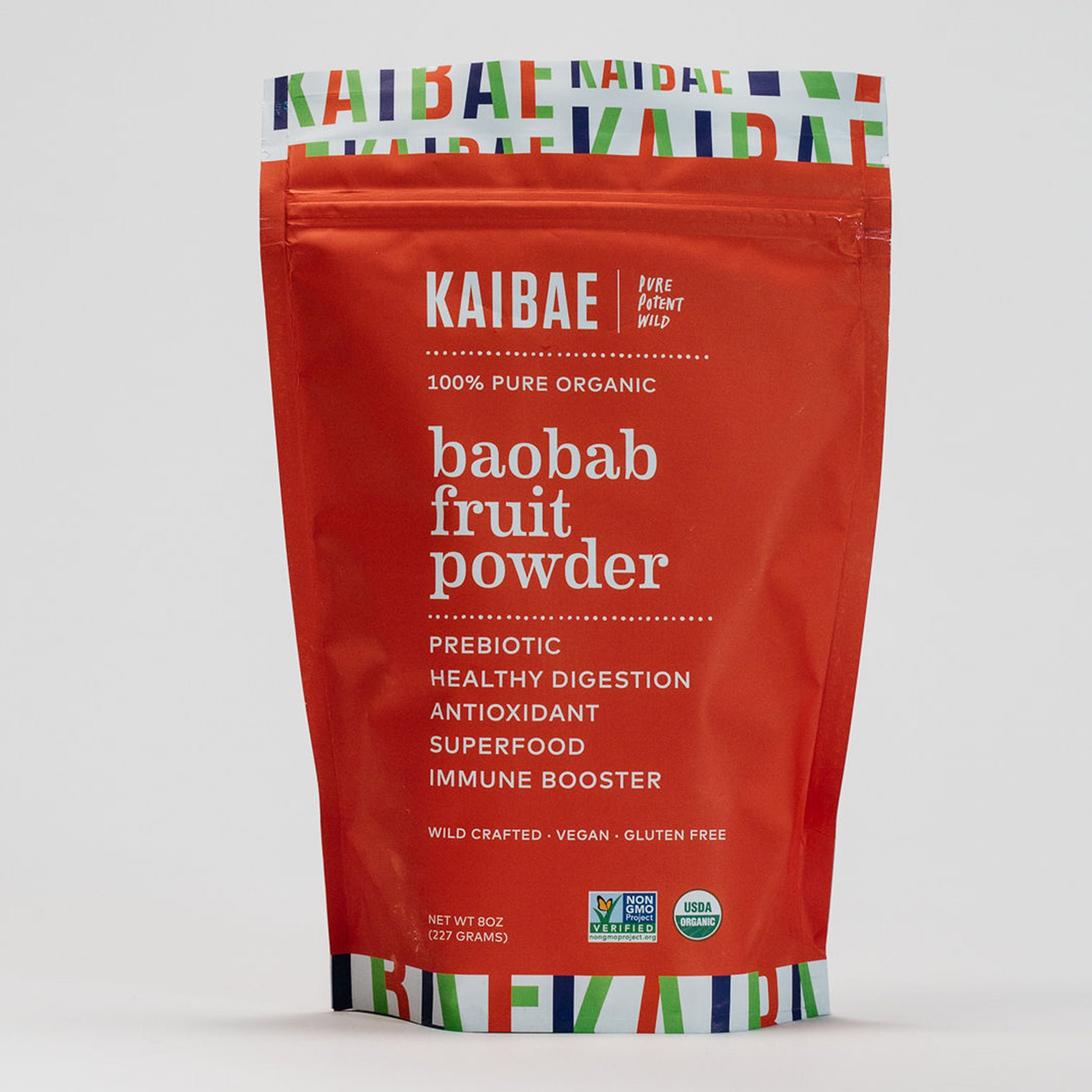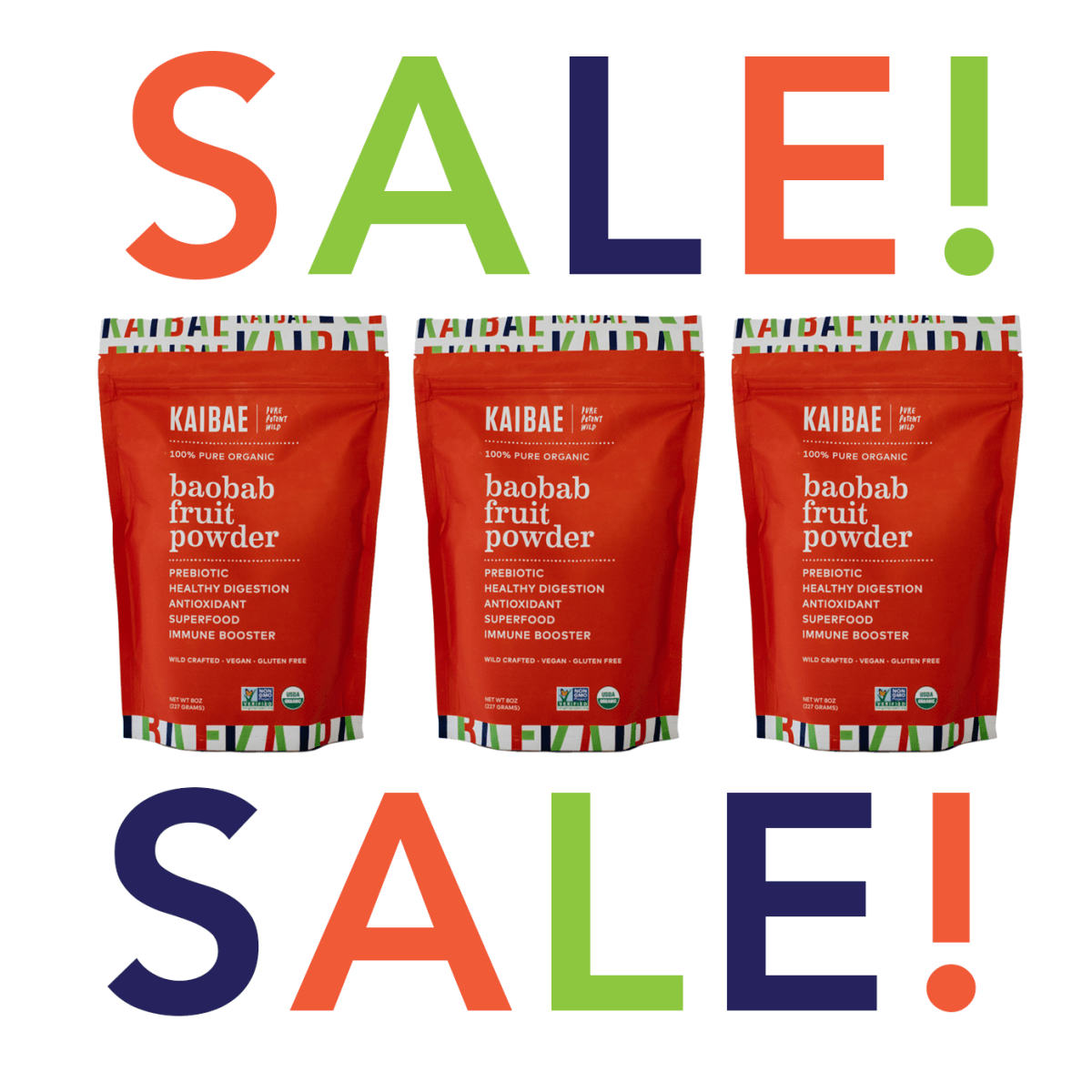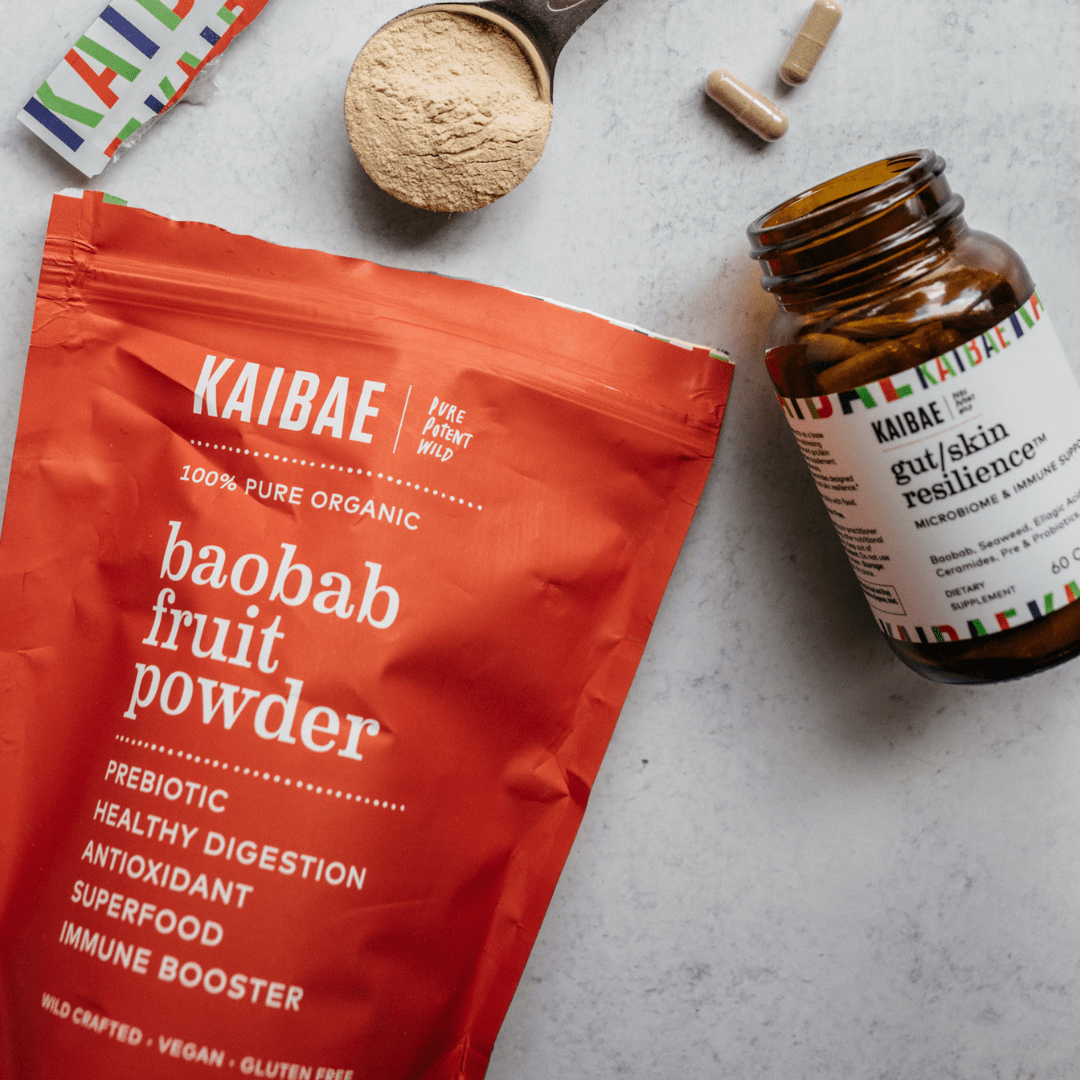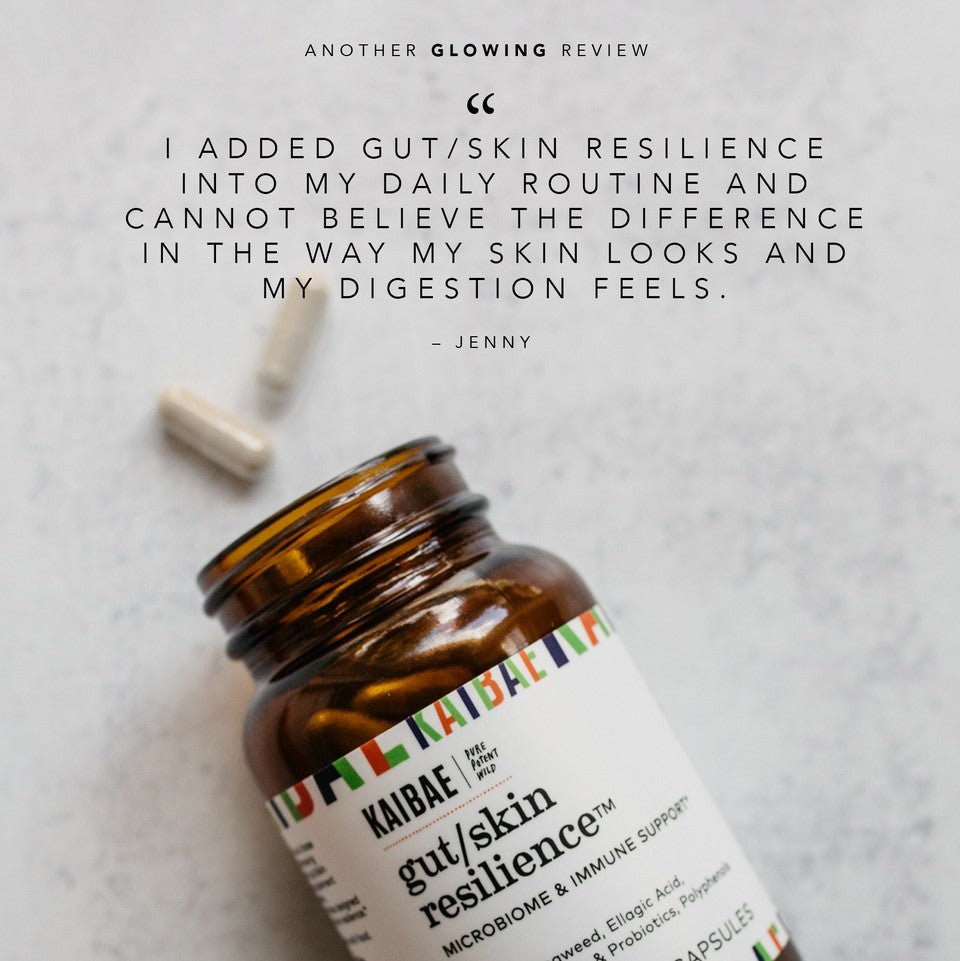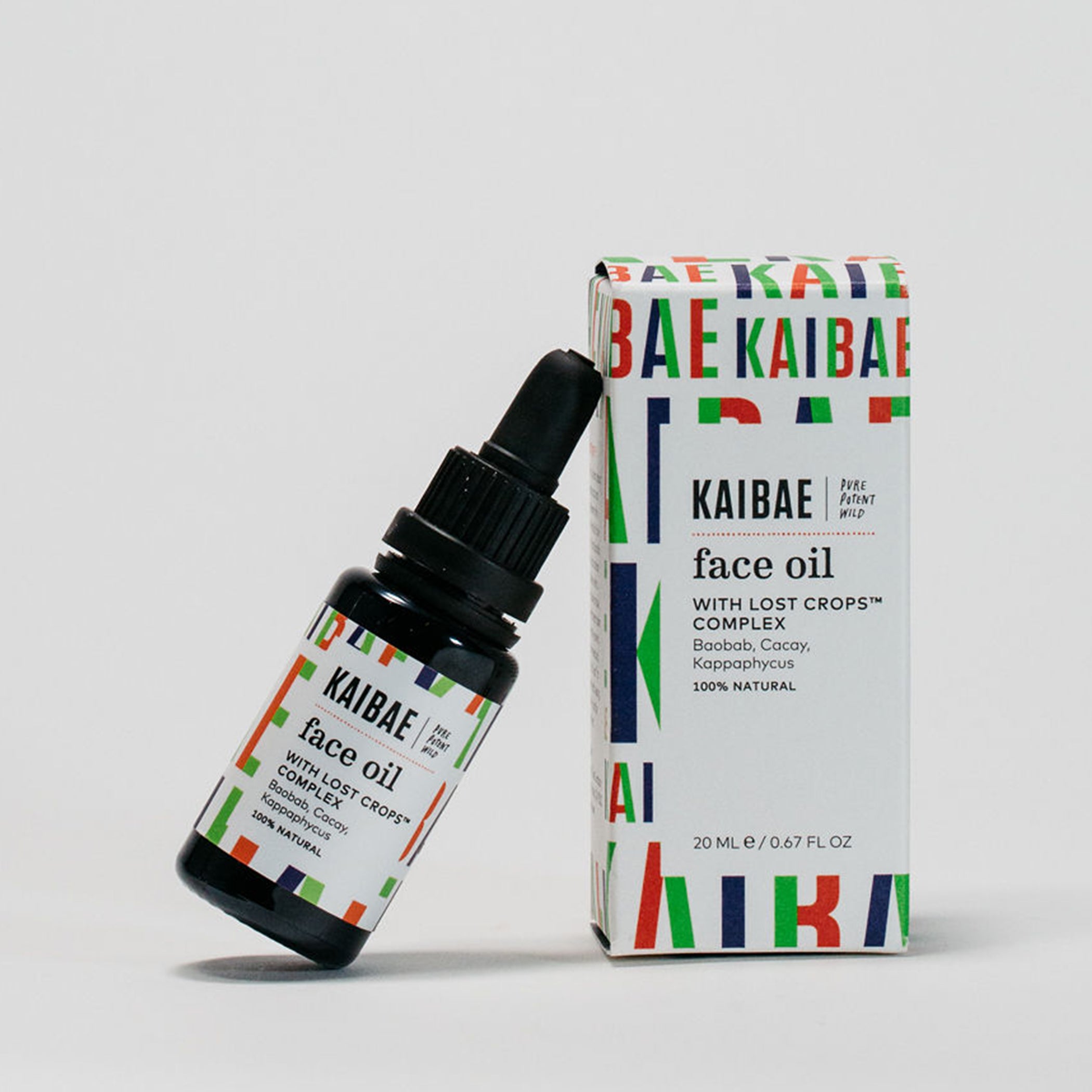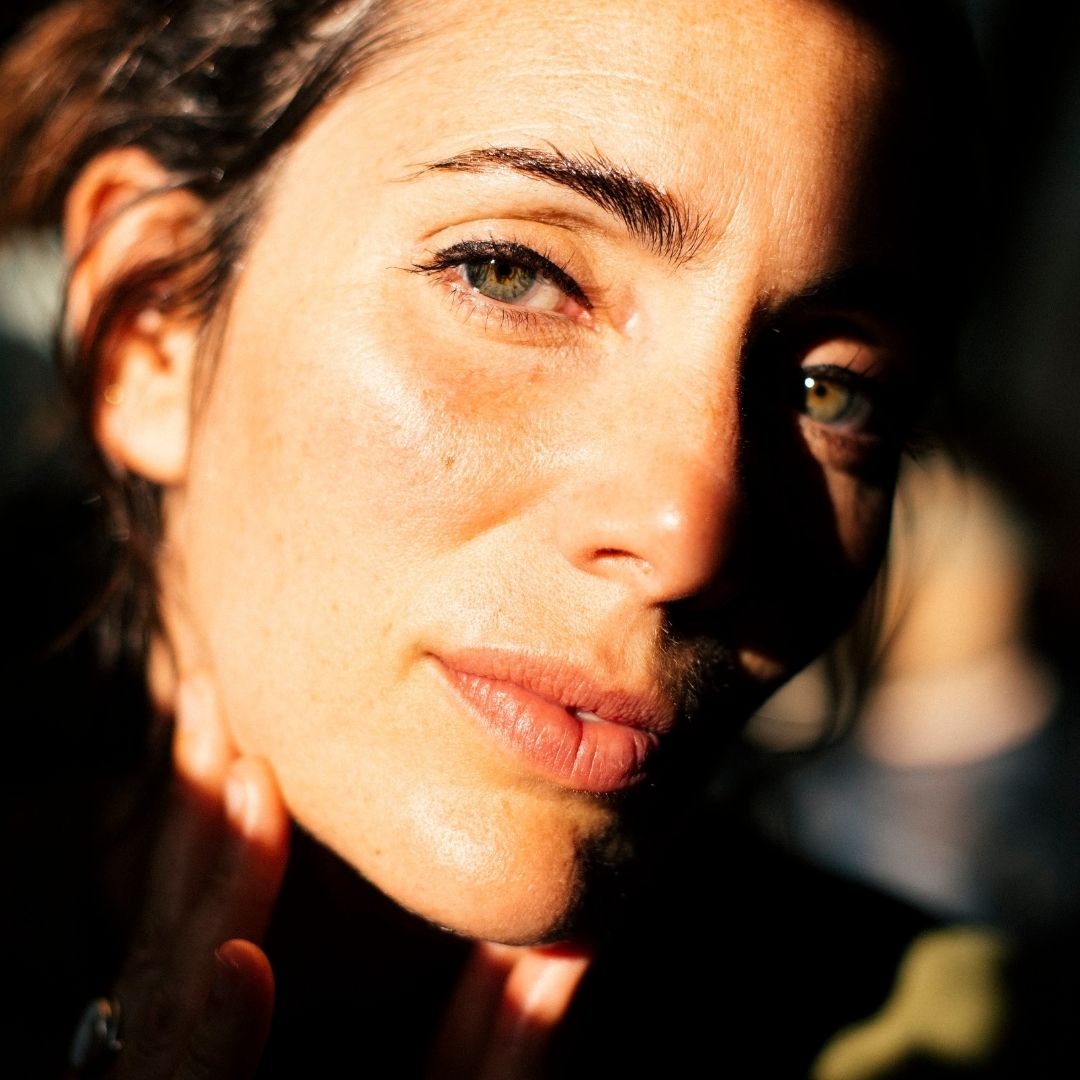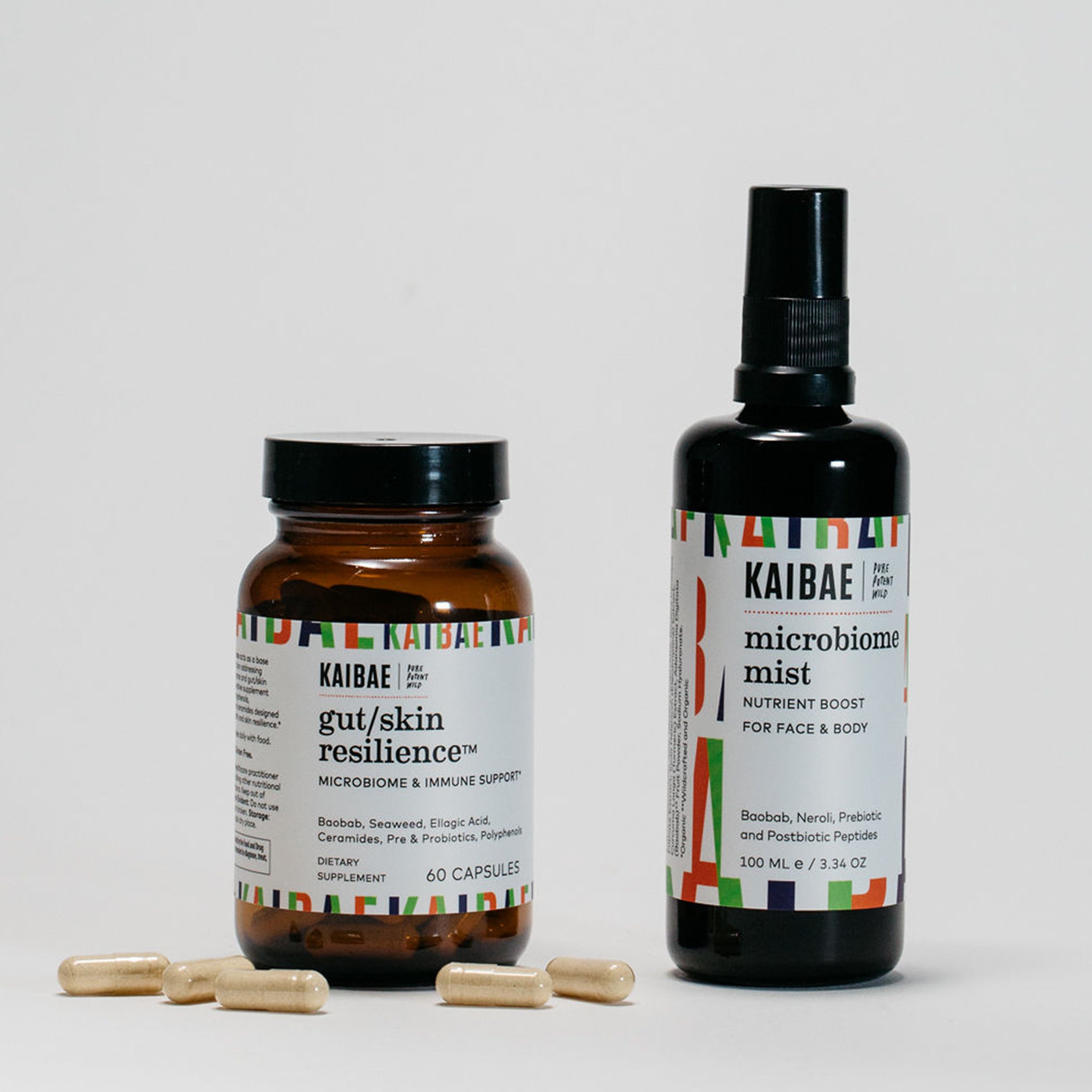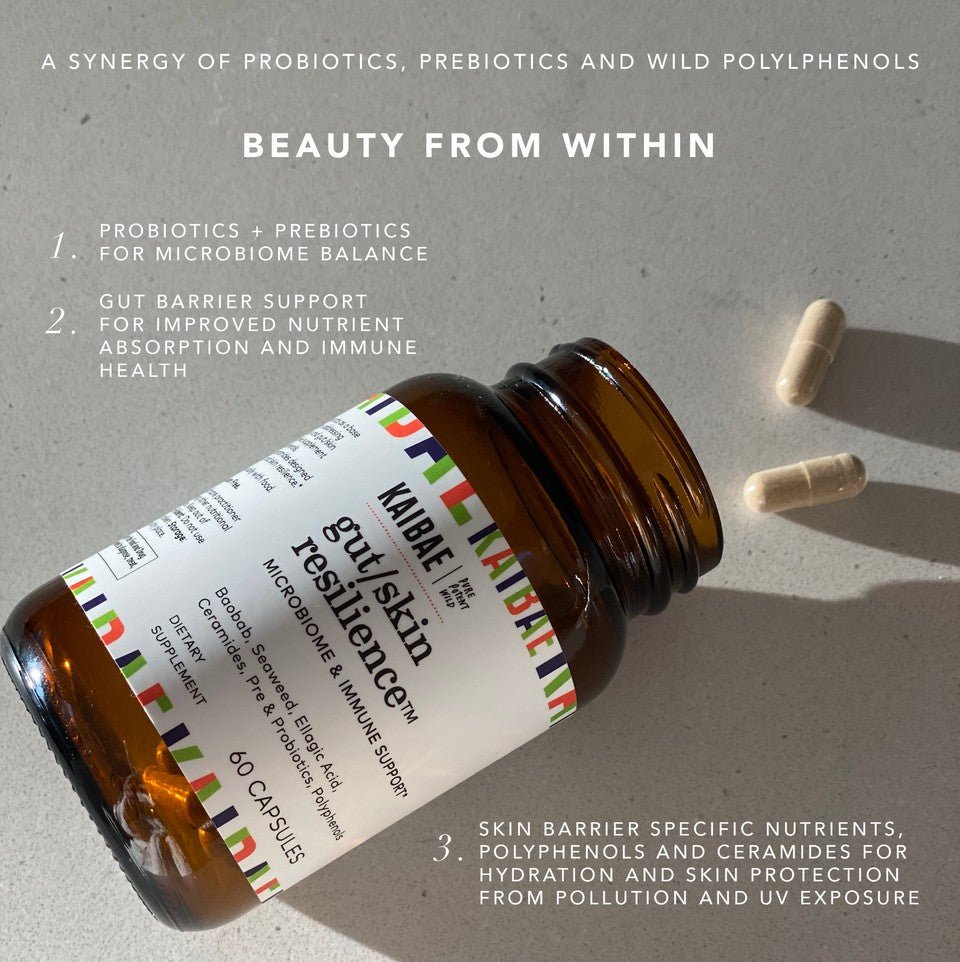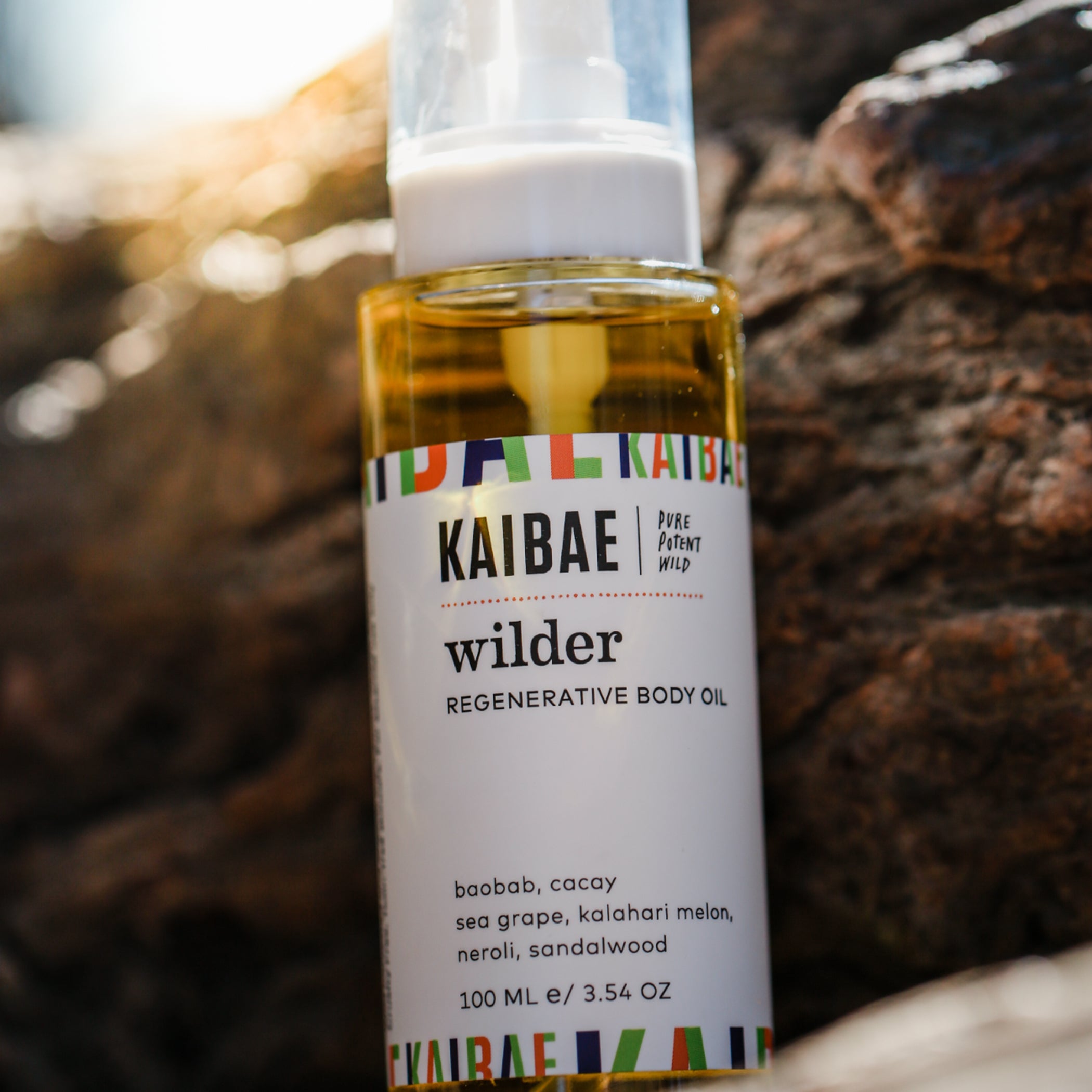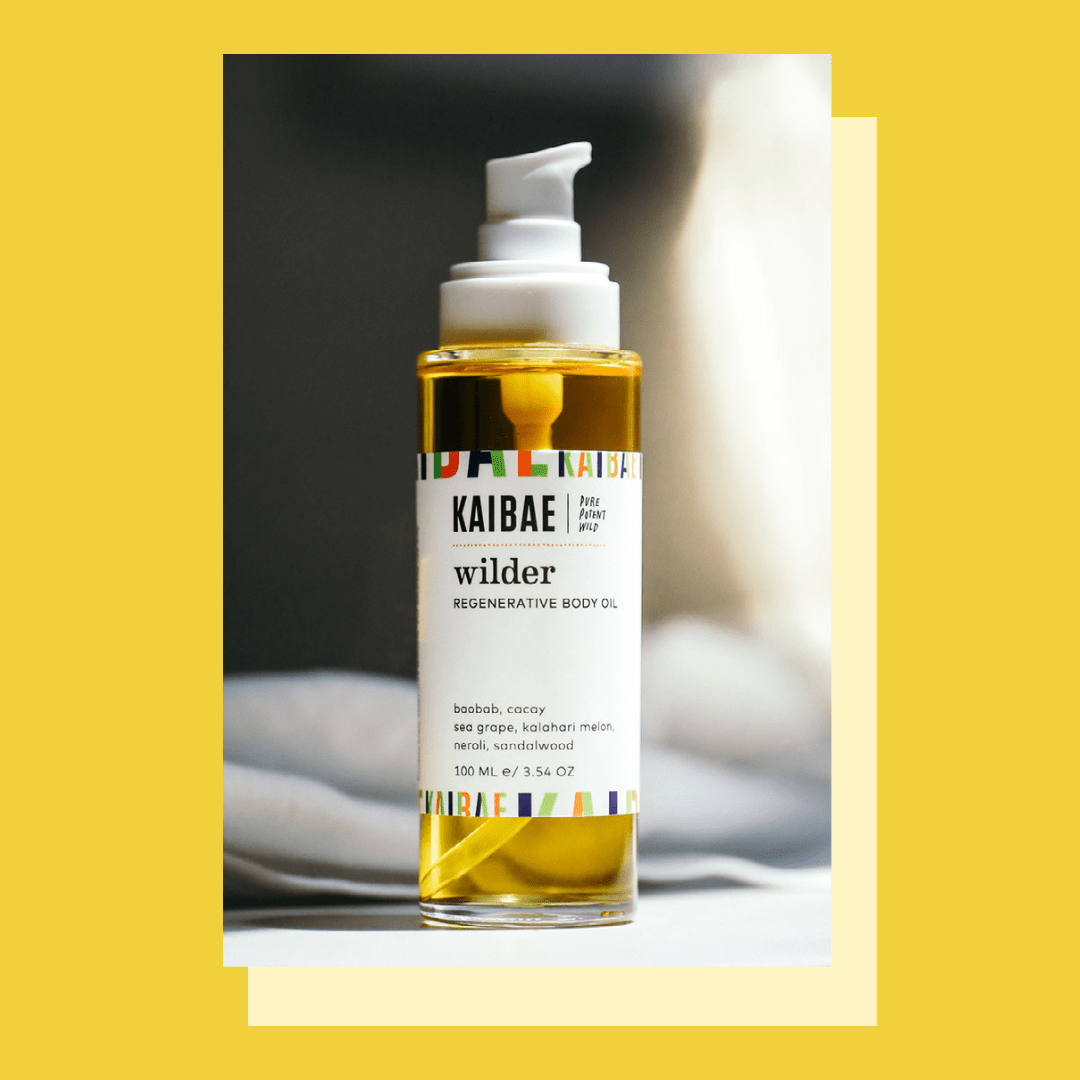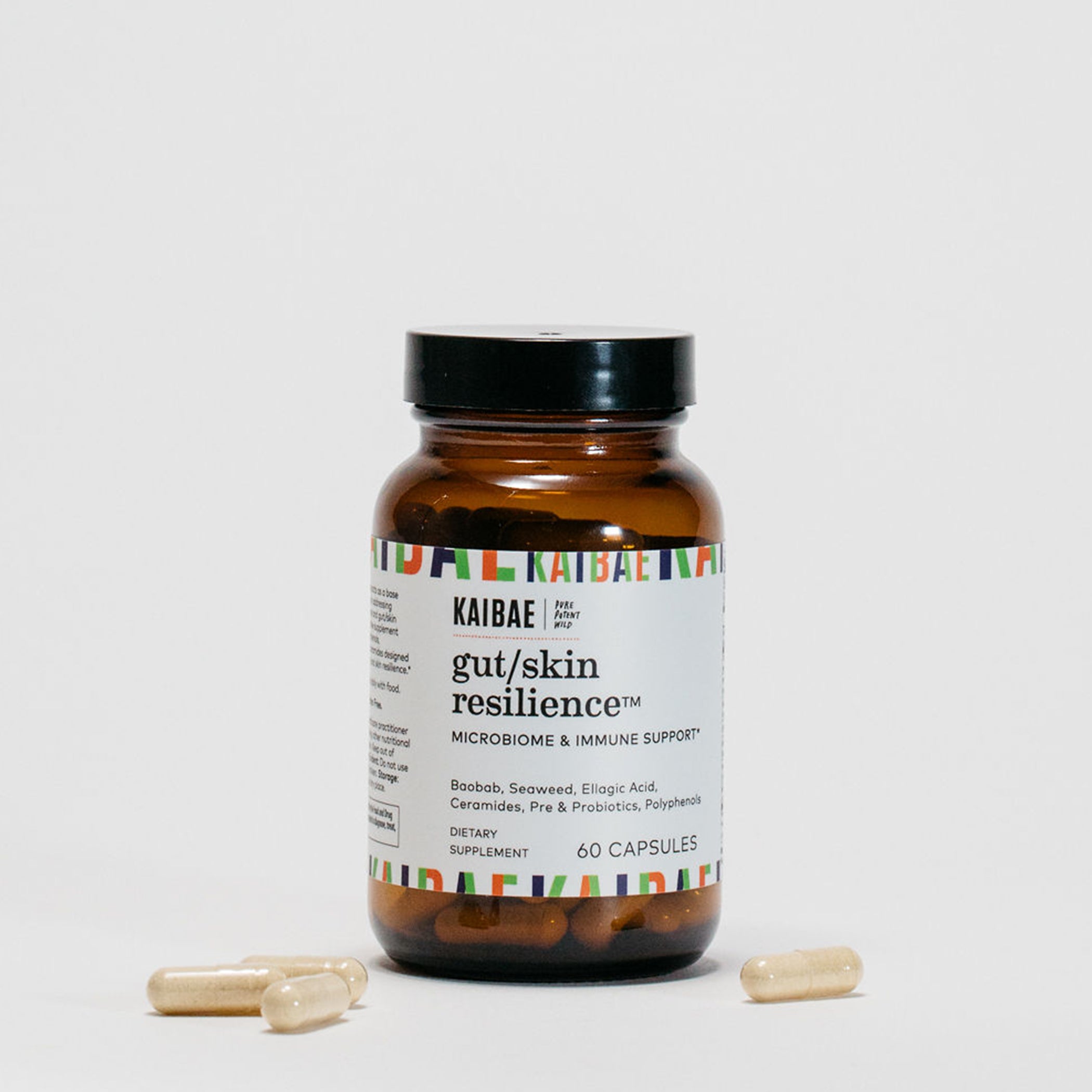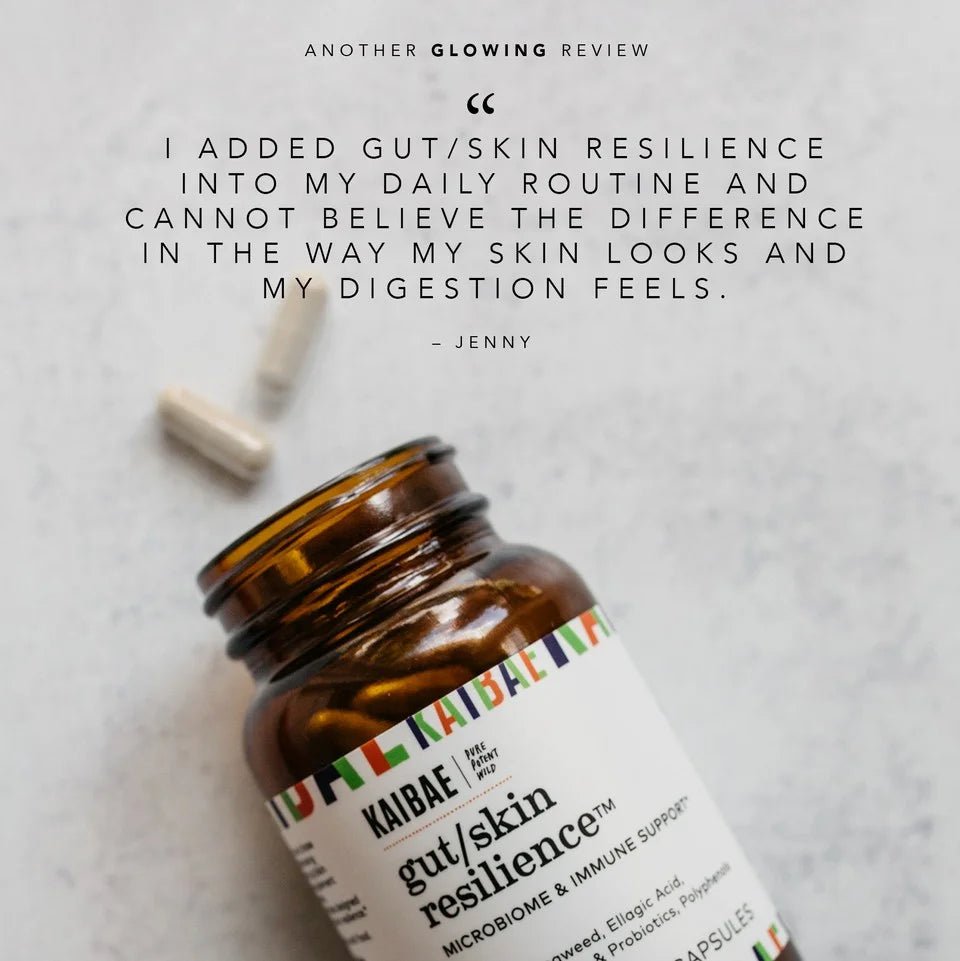Moving Beyond Sustainability Interview with Kelly Kovack & Dr. Luc Maes
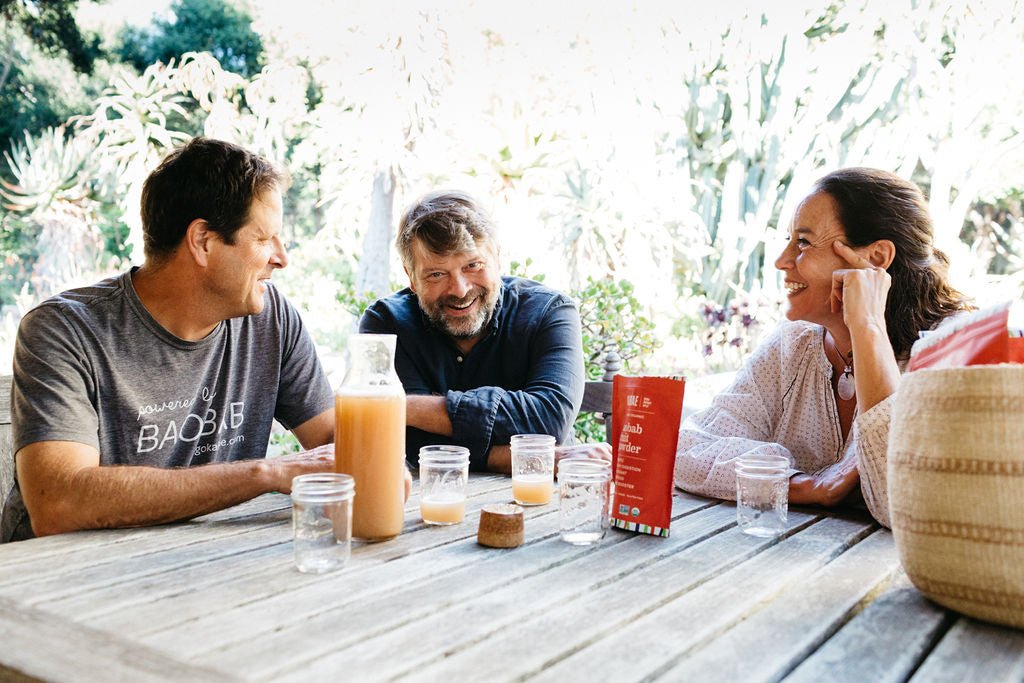
We just had to post this awesome news...as big fans of BeautyMatter and Kelly Kovack's wisdom and wit, we are proud to share Carla Seipp's interview that landed on BeautyMatter's home page. Join us on our journey into the Regeneration of Beauty and Wellness. If you are new to KAIBAE, welcome aboard!
KAIBAE ON REGENERATIVE AGRICULTURE AND MOVING BEYOND SUSTAINABILITY by CARLA SEIPP , BeautyMatter May 26, 2021
Kaibae is a unique convergence of naturopathy, humanitarianism, and curation. Dr. Luc Maes (a plant-based medical practitioner), Thomas Cole (a community development and supply chain management expert), and Barbara Berger Maes (an advertising, marketing, and business development veteran), joined forces in 2011 to address the environmental, communal, and personal impacts of a lack of biodiversity, be it in the earth or gut/skin microbiome. Whether it’s artisanal soap on a rope made with hand-harvested ingredients or their upcoming summer release, an all-purpose moisturizing stick made of shea butter, allanblackia, and baobab, all of Kaibae’s products are made incorporating lost crops—ingredients that can give back not only to the earth, but communities as well. Kaibae’s journey began with the baobab tree in Northern Ghana, also known as the “Tree of Life.” Today, the brand incorporates additional crops such as the Amazonian cacay, African allanblackia, seaweed, and shea butter. Dr. Luc Maes and Barbara Berger Maes sat down with BeautyMatter to discuss regenerative agriculture practices, the imperative for adoption of these methods beyond the beauty industry, and cultivating biodiversity.
First off, how would you define regenerative agriculture?
Dr. Luc Maes: Regenerative agriculture is where one contributes in a beneficial way to the soil, by adopting practices that regenerate the nutrients in it. To grow plants that basically provide more nutrition and are better for the lands. We work specifically with wild plants. Regenerative in our approach is preserving what nature already has, and plants that are important to their ecosystem, and the communities that live among these plants. Agroforestry is at the core. We partner with local communities that do not have access to the market. What’s unique about Kaibae is that on our team, we have a humanitarian and specialist in agricultural and African community development, who has experience in working with refugees in post-conflict regions, where these plants can make a difference for their livelihoods.
In what ways does your brand support those local communities?
DLM: These plants grow in abundance in regions of the world where poverty is widespread, these are untapped. We call them lost crops, whose health and beauty benefits are undervalued. The baobab tree introduced us to this whole world of wild plants that, in addition to their very difficult agricultural practices in these arid regions, can add income. For example, the baobab tree is harvested during the dry season, when no harvest takes place. Kaibae established a supply-chain partnership with these local communities where there was none before, and we continue to do that for more plants. We started with baobab nine years ago. We now include shea nilotica in northern Uganda, a post-conflict region; we are now adding on allanblackia, a tree that grows in the rain belt region in Ghana that was getting lost to deforestation. With my background in medicinal plants, I do a lot of research on them, learn about their environment, how they can make a difference, how we can incorporate their unique health benefits, add economic value. Instead of having them chopped down for one-time use. We look to add regenerative yearly income for communities and preserve biodiversity.
How do certain crops enrich the soil and enable biodiversity within those fields?
DLM: These trees draw water to the soil, capture carbon. It’s their ecosystem. Once you start losing these trees, it leads to deforestation and desertification, which results in communities falling apart, moving to cities thinking it’s better somewhere else. By preserving these wild trees, they continue to regenerate and preserve the soil in their ecosystems, and support these communities. Whereas in agriculture it’s a human mimicking nature, a desire to go back to original ways of treating the soil that is not depleting. Here we are preserving what’s already there—it is regenerative, wild harvesting.
Traditional farming methods or mono crops do the opposite. Are there any plants that in themselves have that detrimental effect or is it the methods of cultivation and harvesting?
DLM: It’s the chemicalization, mono cropping, and the repeated lack of replenishing the soil that has led to this tendency to desertification. In the wild, now I am going to sound esoteric, but plants talk to each other, have a relationship, feed upon each other, support ecosystems of insects and animals. I was introduced to some vintners in Italy who are now mixing crops because they’re able to improve the quality of their wines. The same thing in permaculture: the rotation of crops and permaculture practices in biodynamic farming preserve the soil. That’s what nature does by itself.
Also, the humus layer of the soil absorbs carbon and that combats climate change?
DLM: Correct. If you look at companies like Patagonia, they have a full branch of regenerative practices. The way we treat animal husbandry and farming, it all integrates, and as a result, we can continue to have food that feeds our health and our skin. The soil has a microbiome. That word is big right now, but it is a vital living layer that is not only depleted from our soils due to current practices, but wild soil actually contains its natural microbial environment, making plants that are living in the wild much more resilient. They have a greater vigor, this intense wisdom to organize nutrients within them. That’s what we were losing by not adopting these practices in agriculture.
"Once you start losing these trees, it leads to deforestation and desertification, which results in communities falling apart."
BY DR. LUC MAES, CO-FOUNDER, KAIBAE
That idea of biodiversity, whether that’s in gut health or skin or the soil, it all comes full circle within the company. What do you see as the biggest misconceptions around biodiversity and regenerative agriculture?
DLM: It’s beyond sustainability. We’re talking about sustainability, that’s maintenance. I see other companies trying to ride that train. Sustainability is, in my opinion, is just keeping things the way they are. We’re trying to improve upon something that we’re losing. Adopting these regenerative attitudes is important, both in wild harvesting and agriculture. The word sustainability does not equal regeneration. Biodiversity is important, too. There are parallels within human health, beauty, and the environment. What we’re seeing around us is happening within us.
Barbara Berger Maes: What’s frustrating to me is the overuse of the word sustainability. It needs to go beyond that so it’s regenerative, which is giving back to or really looking at the source.
DLM: We actively initiate these relationships. More and more, there needs to be true transparency and true traceability if we’re going to talk about regenerating in our marketing and messaging, showing that we truly are doing that type of work. We actually provide impact reports. I would hate for the word regeneration to become a new buzzword. It’s a true practice.
Speaking of that transparency, what can you tell me about your value chain? DLM: One, we built our own processing center in northern Ghana, where there was none before. 85% of the people that work in the processing center are women. There is equal pay for men and women, this is during a time when there was no income. I’m excited to share that our most recent impact report right before COVID indicates that the baobab harvest is now the largest source of income for the whole year, for the communities that we work with. After nine years of work, it was very rewarding to hear that they could add that money more towards education and health care, which was the original question we asked the elders: what is it that you want out of this opportunity for trade? I was going to bring in these major machines to do the processing, and I have a solid partner on the ground, who now has an MBA through Kaibae. He is a solid individual on the ground who manages relationships with our communities. Our harvest is managed by Ecocert. Every year we’re audited, ensuring that the handling, processing, and shipping is all done in accordance with organic practices and regulations. Community members are trained every year to work according to these guidelines. Not only do they get income from the harvest, but on top of that they get a premium payout every year for the people who participate in the harvest. We have a direct trade relationship. Every year Tom [Cole] and I go back, meet with our communities, ensure that we answer any questions or concerns they have. It is a very open, direct relationship. The whole premise of Kaibae is to promote economic development. BBM: It goes back to the people. That’s why we are there ensuring every year that their needs are getting met. They tell us what they want and need. It’s a very open kind of dialogue. DLM: We pay double for our baobab than other companies do. We’ve maintained that because of the goals we have. I want consumers to be active participants in that.
Brands will make these claims, but you don’t really see the efforts of that going through. These raw materials are going into products in the Western market, but there’s not enough going back to the communities that are actually harvesting them.
DLM: We bought all the machines, established a processing center, paid for the cert organic certification. We don’t stress the communities. We have a relationship in Kenya, which is still small, but budding, that we’re modeling after Kaibae’s success in Ghana. We truly do not want to over harvest or deplete. When I met the elders the first time we visited, they said, “Okay, we will work with you on two conditions. One, I’m always going to keep enough for myself. Two, I want you to come back every year.” That was what I loved about their approach to our opportunity for trade.




